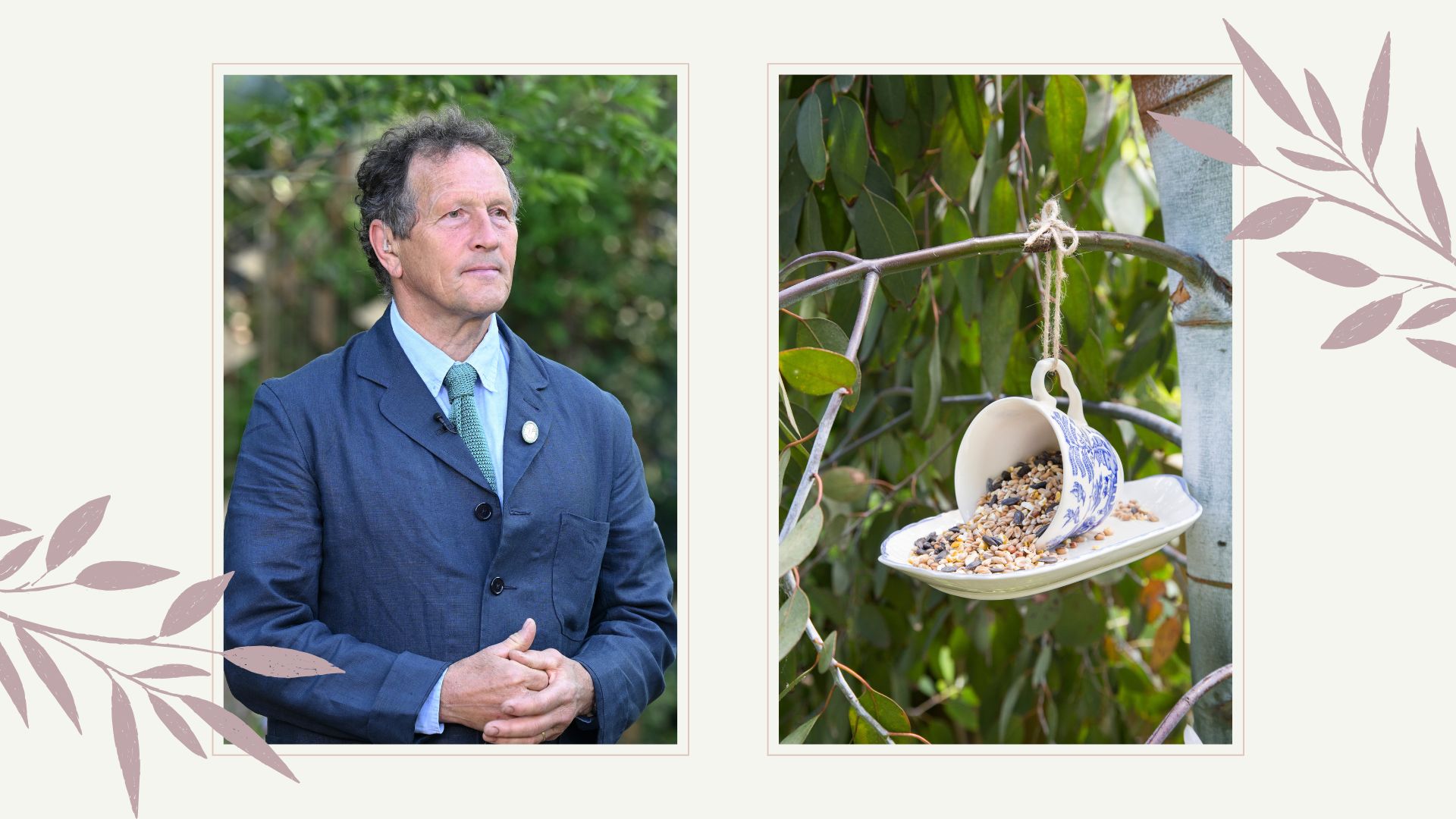
Gardening expert Monty Don has shared his crucial do's and don'ts when it comes to feeding birds during the winter months.
There are several ways to attract birds into your garden but providing them with the right food is probably the most effective and beneficial.
Whether you are attracting birds to eat slugs as a natural pest deterrent or are an avid bird watcher, there are certain types of food you should be putting out – and many you should avoid.
Thankfully our most treasured gardening expert Monty Don has come to the rescue to explain which foods are good for birds and which ones should be avoided at all costs.
Monty Don's bird feeding advice
Discussing feeding birds in his latest monthly blog post, Monty pointed out that as winter draws in a lot of birds' natural food sources can become scarce.
"As the weather changes, the birds greedily feed off any seeds and berries in the garden but they soon get taken. So supplementing this natural supply both helps them and provides a fascinating chance to share and observe their world," Monty says.
Whether or not you're participating in the rewilding trend putting food out for birds during cold weather is not only great for your own entertainment but will benefit your garden's ecosystem too.
Monty goes on to talk about what food is best for our feathered friends.
He says, "It helps for the food to be as calorific as possible and seeds, nuts and fat are best of all. Left-over Pastry, bread and rice always get eaten fast and fruit is good, especially for blackbirds and thrushes."
Surprisingly, grated cheese and cooked potatoes are also bird-friendly food alternatives. Who knew?
"Avoid anything salty such as crisps, salted peanuts or bacon. I buy dried mealworms too which robins, tits and wrens gobble up greedily. If in doubt sunflower seeds and fat-balls - preferably hanging so tits can land on them without being bullied away by more aggressive birds - are invariably popular," continues Monty.
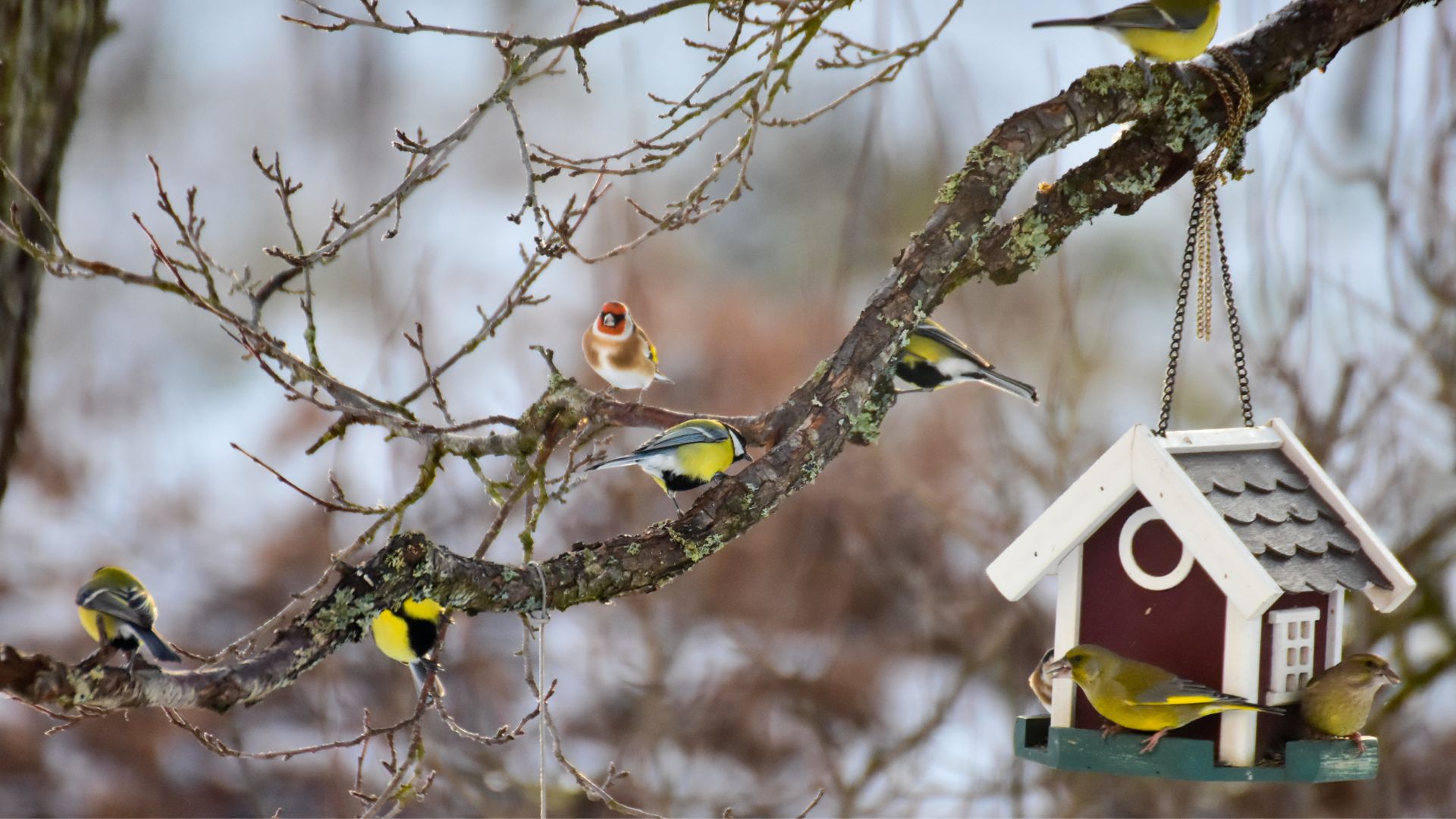
You may be reluctant to put out bird food if you want to prevent pigeons from coming into your garden, however, Monty says there's a solution for this.
"Another way of making sure that all the food does not get gobbled up by pigeons and starlings is to find an old log with lots of cracks and crevices and pour seed over it. The smaller birds will extract every last bit from the fissures that bigger ones cannot reach," he explains.
Monty finishes his explanation by suggesting you keep up feeding on a regular basis as birds will use limited energy coming to your bird table so it needs to provide something. He also points out the importance of supplying fresh water during the freezing weather.
Shop bird-friendly food and feeders
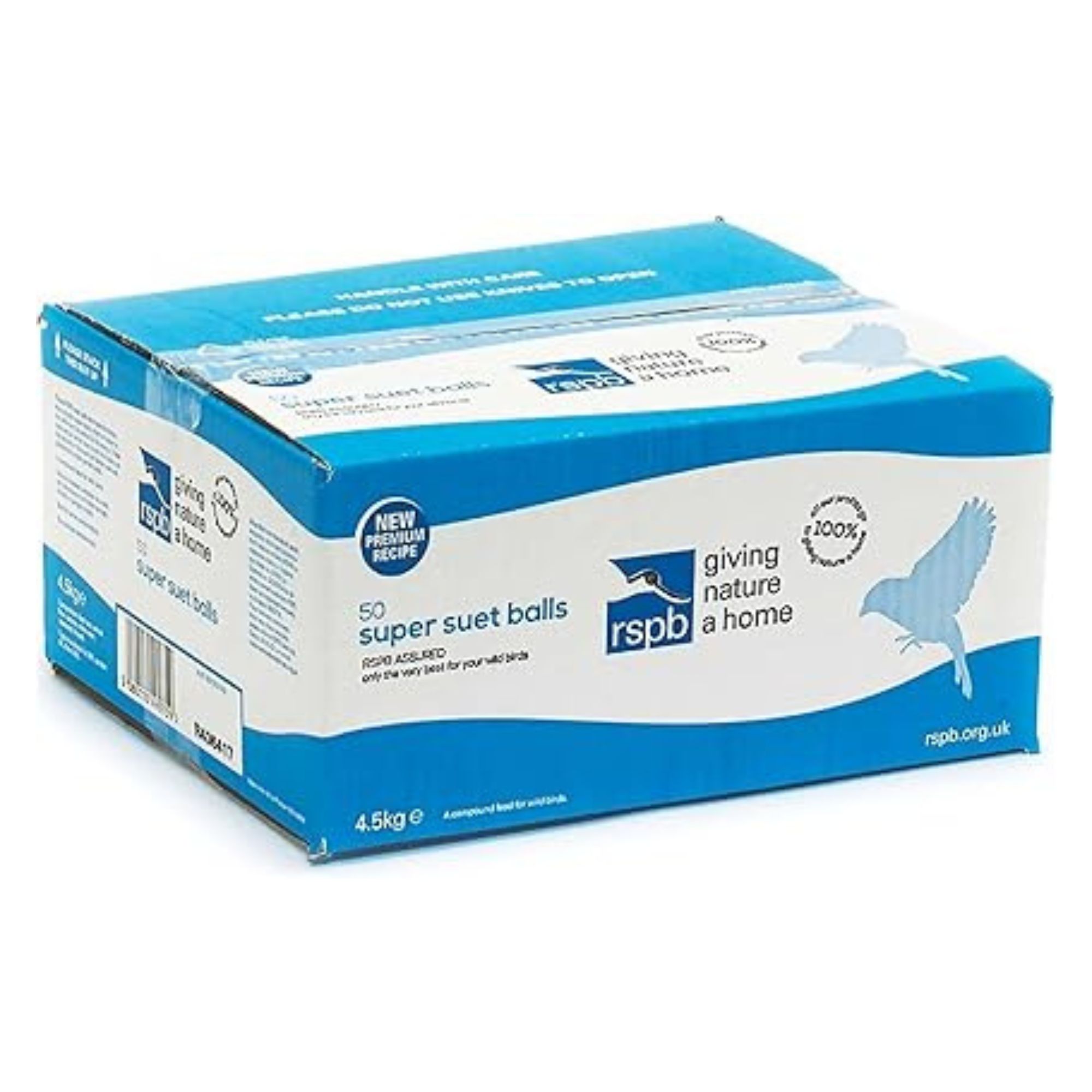
RRP: £15 | This pack of 50 fat balls provides brilliant energy-rich treats for all birds with a nutritious blend of suet, wheat flour, peanut flour, millet seed, rapeseed and linseed. Plus they're from the RSPB, a charity dedicated to bird conservation.
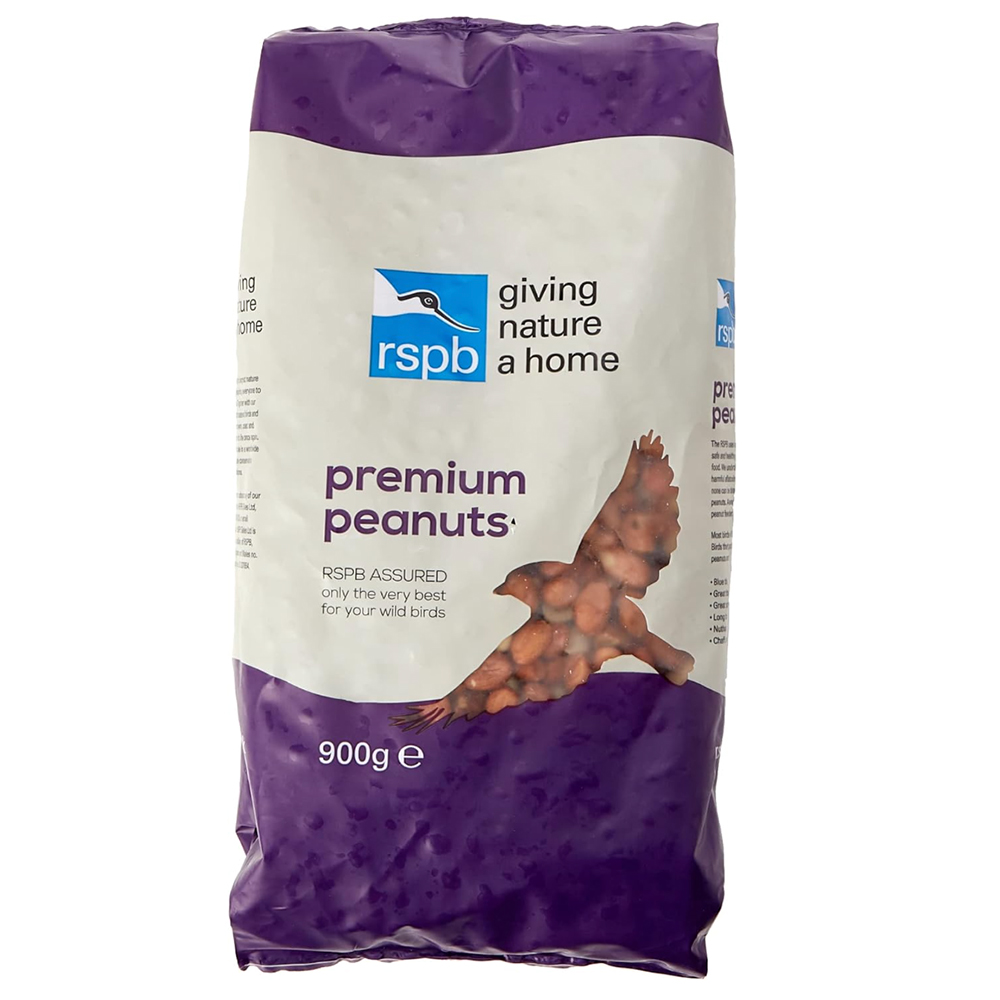
RRP: £5.50 | The best way to feed birds peanuts is to use a trusted source that doesn't contain any salt - such as these best-selling RSPB premium peanuts. Like Monty mentions you need to avoid providing the birds with any food too salty as it's very unhealthy for them.
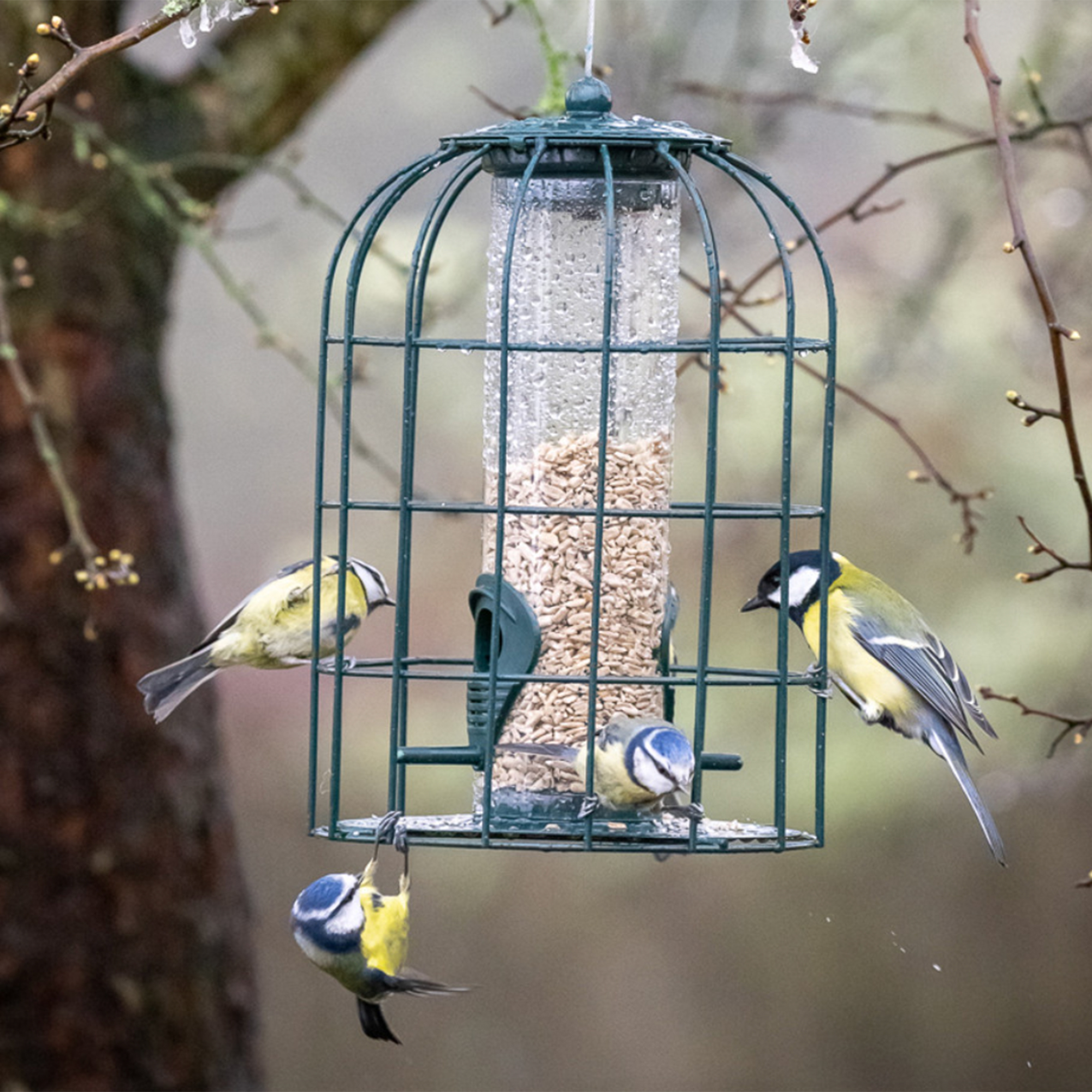
RRP: £24.95 | Entice birds into your garden by providing a safe space to perch and eat, a place free from squirrels eating their food. Keeping squirrels out of your garden can seem impossible so this is helpful for making sure the birds are still fed.
Once you've made sure the wildlife in your garden is being looked after during the winter, make sure you shelter all the tender plants in your garden that need to be brought in this season. As the temperature changes lots of species will need a little extra TLC and quickly before the frost starts.







